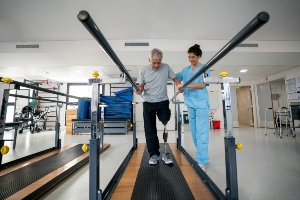What if the At-Fault Driver Was Driving Without a License?
Driving without a license is not only illegal, but it could also complicate a car crash claim. Unlicensed drivers often do not have insurance, raising questions about how victims can seek compensation.
Table of Contents
- What Does it Mean to Drive Without a License in Minnesota?
- What Are the Penalties for Driving Without a License in Minnesota?
- What if an Unlicensed Driver Borrows My Car and Causes a Crash?/a>
- How Can I Recover Compensation for a Crash With an Unlicensed Driver?
- What Should I Do After a Crash With an Unlicensed Driver?
- Did an Unlicensed Driver Cause Your Collision? Schedule a Free Consultation
If you were injured in a crash caused by an unlicensed driver, our Minneapolis car accident lawyers may be able to help secure compensation on your behalf. You pay nothing unless we win your case.
More than $1 billion recovered. Schedule your free consultation: (612) TSR-TIME.

What Does it Mean to Drive Without a License in Minnesota?
Driving without a license means that the license was:
- Never Issued: The driver never obtained a driver’s license.
- Suspended or Revoked: The driver’s license was suspended or revoked due to previous traffic violations or legal issues.
- Expired: The driver is operating a vehicle after his or her license has expired.
- Not Within Possession: Some drivers may have a valid license, but it is not in their possession at the time of the crash.
What Are the Penalties for Driving Without a License in Minnesota?
It is illegal to drive without a valid license in Minnesota or any other state. This offense is a misdemeanor that comes with a fine of about $200. This includes surcharges on top of the standard fine.
The police can also cite drivers who have a valid license but do not possess it when they get pulled over or questioned by officers. However, courts usually dismiss the ticket if you present evidence that you had a valid license when you were cited.
Driving with an expired license is punishable by a $200 fine, which is a $100 fine along with another $100 in surcharges.
What if Your License Was Revoked, Suspended or Cancelled?
Most of the time, these drivers will receive a $200 ticket that costs about $300 after fees are added. However, if your license was canceled in the name of public safety, you can be charged with a gross misdemeanor. This could mean up to one year in jail and fine of $1,000.
The state only cancels driver licenses after multiple serious offenses, such as a third driving while intoxicated charge within a 10-year period.
While the criminal penalties can be steep, unlicensed drivers who cause collisions also face civil liability for the damages that resulted.
What if an Unlicensed Driver Borrows My Car and Causes a Crash?
If an unlicensed driver is using your car and causes a crash, there are several possible legal and insurance-related consequences:
Criminal Charges
The unlicensed driver may face misdemeanor or felony charges, depending on the details of the incident. These charges can lead to fines and possible jail time, especially if the driver is a repeat offender or if the crash caused serious bodily injury or death.
Civil Liability
The injured parties can sue the owner and driver for compensation related to property damage, medical expenses and other losses from the collision.
No Insurance Coverage
If you allow an unlicensed driver to use your vehicle, in rare cases your insurance might not cover the collision. This is true even though Minnesota car insurance tends to follow the car and not its driver. However, coverage is going to depend on the terms of your policy.
How Can I Recover Compensation for a Crash With an Unlicensed Driver?
Minnesota’s no-fault insurance system allows crash victims to obtain compensation for medical care and certain other damages regardless of who is at fault. In other words, the fact that the at-fault driver is unlicensed should not affect your ability to obtain compensation from your own insurance policy.
It may also be possible to file a claim with the at-fault driver’s liability insurance, if he or she has any. However, unlicensed drivers often do not have insurance. In such a case, you could use your uninsured motorist coverage.
What Should I Do After a Crash With an Unlicensed Driver?
There are several steps you should take to protect your safety and your legal rights:
- Ensure Safety: First, check for injuries and make sure everyone is safe. Call 9-1-1 if anyone is hurt and needs emergency medical care.
- Report the Collision: You are required to report most crashes that occur, but this is especially important when the at-fault driver does not have a license. The police will file a report about the crash, noting what happened and the fact the at-fault driver is unlicensed. A police report can be a valuable tool for insurance claims.
- Exchange Information: Collect the unlicensed driver’s contact and vehicle information, and the vehicle owner’s information, if the owner and driver are not the same person. You may be able to seek compensation through the vehicle owner’s policy, so you need to know how to get in touch with the owner and/or the insurance company.
- Document the Scene: Take pictures of the crash, including the vehicles involved, including license plates, visible damages, injuries and road signs or conditions.
Did an Unlicensed Driver Cause Your Collision? Schedule a Free Consultation
If you have been injured in a car crash caused by an unlicensed driver in Minnesota, TSR Injury Law is here to help you fight for your rights.
If you need help navigating your claim or recovering compensation, contact TSR Injury Law to discuss your case and explore your options for recovery. You pay nothing unless we win your case and recover compensation, either through negotiation or a courtroom decision.
Call TSR today to learn more: (612) TSR-TIME. Free initial legal consultation.




 After a car crash, victims often tend to experience dizziness as a symptom of underlying injuries, including:
After a car crash, victims often tend to experience dizziness as a symptom of underlying injuries, including: